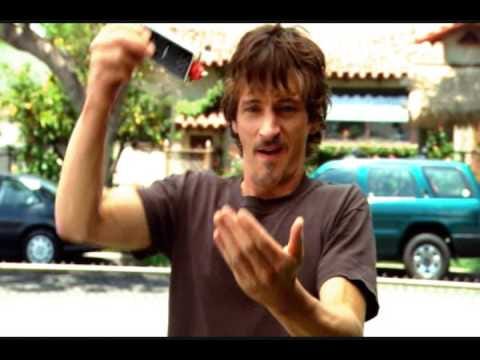Miranda July is a filmmaker whom I first encountered via her film Me and You and Everyone We Know. It’s a deeply polarizing film that people will either love or hate, and a difficult one to categorize. Is it a comedy? A drama? Something else entirely? The IMDb summary says “A lonely shoe salesman and an eccentric performance artist struggle to connect in this unique take on contemporary life.” Good enough. Here’s one of the many unforgettable scenes:
[The video I linked to has been taken down. Here’s a bit from the opening credits.]
Roger Ebert put MAYAEWK at #5 on his list of the ten greatest films of the ‘00s. (Number 1 was Synecdoche, New York, which may be my favorite movie. Certainly top 5.) Ebert wrote, in part:
Imagine Christine and Richard as they walk down the street, still strangers. She suggests that the block they are walking down is their lives. And now, she says, they're halfway down the street and halfway through their lives. Before long they will be at the end. It's impossible to suggest how poetic this scene is; when it's over, you think, that was a perfect scene, and no other scene can ever be like it. And we are all on the sidewalk. July's film fits no genre, fulfills no expectations, creates its own rules, and seeks only to share a strange, lovable mind with us.
But I’m not here to talk about MAYAEWK. I’m here to talk about July’s third film, Kajillionaire. It’s about one of the most dysfunctional families I’ve ever seen in a film, and I include Léolo in that assessment. It stars Richard Jenkins (you’ll recognize him) and Debra Winger as a married couple, and Evan Rachel Wood as their daughter, Old Dolio.
The family is fanatically obsessed with getting rich, with making money without “selling out” by getting a job. They have no permanent address, living in warehouses and laundromats’ back rooms and similar places, never paying the rent they’ve promised and always avoiding the landlord until it’s time to skip out. Their existence is an endless stream of scams, hustles, kited checks, insurance fraud, ad nauseam. Old Dolio is the main character—they named her after a homeless guy they knew who won the lottery, in the hope that he would give them some of his winnings. (He didn’t.) Evan Rachel Wood is an actor of wild versatility, and the way she vanishes into this role, and into Old Dolio’s oversized men’s clothing and uncut hair, is astonishing.
Old Dolio somehow meets a friend someone who doesn’t live this way, and finds herself powerfully drawn to this other, calmer way of existing. And then something happens, a brush with the infinite that is so perfectly written and filmed that I don’t want to say another word about it.
Today’s music is the soundtrack to Kajillionaire, composed by Emile Mosseri, and like the film, it is so unusual and perfect as to defy categorization. This is almost fully unlike any music I’ve ever heard. It uses recognizable instruments, but as Marx observed, quantitative changes eventually become qualitative changes, and that’s exactly what’s going on here.
I think this link should play the entire album, but being YouTube, it will probably have intrusive ads between songs.
If you have a Spotify account, you can listen here:
Notes:
When my theatre company produced Caryl Churchill’s Escaped Alone in early 2023, I played the Kajillionaire soundtrack as the house music for before the show started. Multiple people asked about it.




Thanks for this.